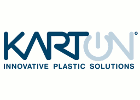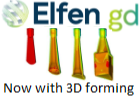In the 33rd meeting of the Industry Working Group Research & Technology in April 2023, three experts from industry and research devoted themselves intensively to the topics of sustainability and CO2 reduction with regard to climate change. The individual presentations dealt with sustainability in the construction industry, a soft start for flat glass reuse with IG2Pieces and the recycling of PV modules.
Building certifications are gaining in importance
The ift in Rosenheim classifies the Environmental Product Declaration (EPD) as the central means of assessing the ecological performance of products for sustainable building certification. Certifications are not yet a must, but are becoming increasingly important because, for example, they increase the value of a building, conserve resources and reduce life cycle costs. Worldwide, there are several certification systems that scrutinise different sustainability criteria. Examples of such certification systems are BNB of the German Federal Ministry (rating system for sustainable building), LEED (Leadership in Energy and Environmental Design) developed by the US Green Building Council (USGBC) and the BREEAM (Building Research Establishment Environmental Assessment Method) certification system developed in the UK as early as 1990 and amended in 2008.
The general standards DIN EN ISO 14025 and EN 15804 apply to the EPD of flat glass products in the building sector. In addition, there are certain specifications from the product standard EN 17074 Glass in the building sector - but only to a limited extent, as certain modules are not applicable to glass products.
New ways for the recycling of flat glass
If one estimates the global CO2 emissions of flat glass production, according to the IPCC (Intergovernmental Panel on Climate Change), a forest area of 300,000 km2 would have been necessary in 2021 to compensate for their CO2 emissions. This is roughly equivalent to the total area of Italy. These emissions could be significantly reduced if the industry could reuse used windows.
Insulating glass and window glass are partially recycled, but unfortunately very little is recycled in a circular way - in that flat glass cullet becomes flat glass again. A 2019 study by the German Flat Glass Association shows that only about six percent of the flat glass produced that leaves the manufacturer is also returned to the flat glass furnace.
Hegla New Technology GmbH successfully took a completely new approach to being able to reuse the high-quality flat glass and developed its own concept for this. According to the company, it follows a holistic approach, which offers the possibility to disassemble the insulating glass into its components without cutting or breaking the panes. This means that whole panes can be reused.
IG2Pieces is the name of the first Hegla-internal milestone for more sustainability in the flat glass industry, which is now being tested at the development partner AGC Europe. This breaks down the insulating glass into its individual components, thereby preserving the shape of the glass. This good fractionation produces already "cleaned" waste glass for melting in the flat glass furnace as well as second-hand material that can be reused in subsequent applications such as windows, shelves or other components. The concept includes subsequent processing steps that still have to be developed.
In parallel to these developments, demolition companies will have to ensure in future that they carefully cut windowpanes or glass elements out of buildings without breaking them. Here it is necessary to create a new awareness and implement new processes.
Recycling of PV modules is still in its infancy
There are currently no special processing plants for PV modules on an industrial scale. The processes are similar to the reprocessing of flat glass. The major challenges are the separation of laminated layers and encapsulation material. The research project PVRe2 - sustainable photovoltaics dealt intensively with how recycling processes of PV modules can be optimised. The overarching goal of this project was to increase the sustainability of electricity generation by, for example, increasing module recyclability through appropriate eco-design measures, using repair solutions to extend service life and establishing higher-quality recycling processes. When it came to recycling, the scientists were faced with similar problems as in the flat glass industry. At present, recycling can only be done by crushing and separating, which is why research is being done on various methods for cleanly separating the components of entire modules.
For this purpose, processes such as milling, waterjet cutting, or thin-film sawing were investigated. Depending on the process, it is important to know the layer thicknesses of the individual module components beforehand or to know how the plant technology used can handle any glass breakage that may occur. Another option is to separate the layers thermally, but this poses challenges in terms of waste gas composition.
Regarding the eco-design measures for glass, it has been shown that these do not achieve any significant improvements in the current recycling and recovery routes. Only a closed loop can achieve better assessment results and only more specific recycling processes will lead to a higher (material) recovery rate of materials from PV modules.
























